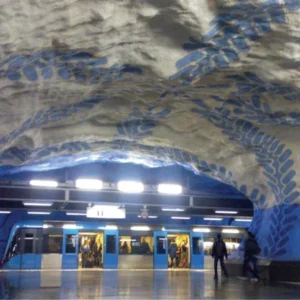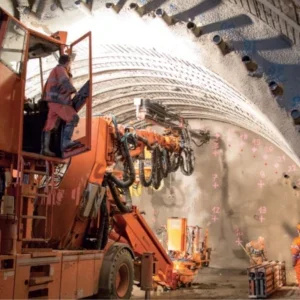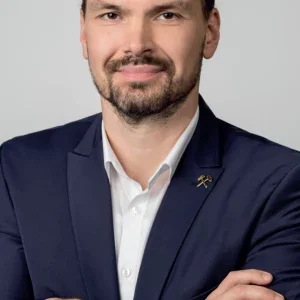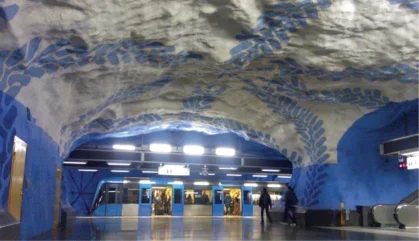
Tunnellers are set to gather in Stockholm – the ‘Venice of the North’ – for the world’s major conference on underground construction, with Sweden as this year’s host nation.
The latest edition of the World Tunnel Congress (WTC) is organised by Svenska Bergteknikforeningen (Swedish Rock Engineering Association) and the International Tunnelling and Underground Space Association (ITA-AITES), respectively.
WTC 2025, as conference and exhibition, runs over 9-15 May in a few sections: pre-congress training; main conference; and, technical tours.

TRAINING
Before the main congress and technical conference, a two-day training course is on offer from ITACET over 9-10 May.
The training course offers a variety of interesting areas of focus under the umbrella theme of ‘Managing Risks, Sustainability, and Innovation’. The course is taught by industry leaders. The planned sessions over the two days are as follows:
DAY 1 (9 MAY)
Session 1: Advanced Risk Management in Tunnel Construction
- Introduction by ITACET Foundation
- Specifics of underground works – geological and hydrogeological uncertainties
- Risk management approach and assessment principles
- Application in conventional tunnelling – case studies
- Contractual management of risks – reference documents
Lunch
Session 2: Sustainable Underground
- Global and local environmental impacts of tunnelling
- Carbon footprint evaluation and carbon emission reduction
- Resource efficient tunnelling – groundwater and excavated material management
- Rock fracture grouting for minimising environmental impact
DAY 2 (10 MAY)
Session 3: Concept to Construction – progressive approach to difficult ground
- Different phases in Progressive Project Design
- Specific investigations in difficult ground conditions and choice of tunnelling method
- BIM as a tool for handling uncertainties in difficult ground conditions
- How to prepare conditions for proper monitoring and asset management
Lunch
Session 4: Future of Tunnelling – smart technologies and innovative approaches
- Smart systems and smart monitoring in tunnelling
- Worksite management and useful tools (safety, production efficiency and traffic awareness)
- Structural inspections and new robotics applications
- Perspectives on AI in design and construction
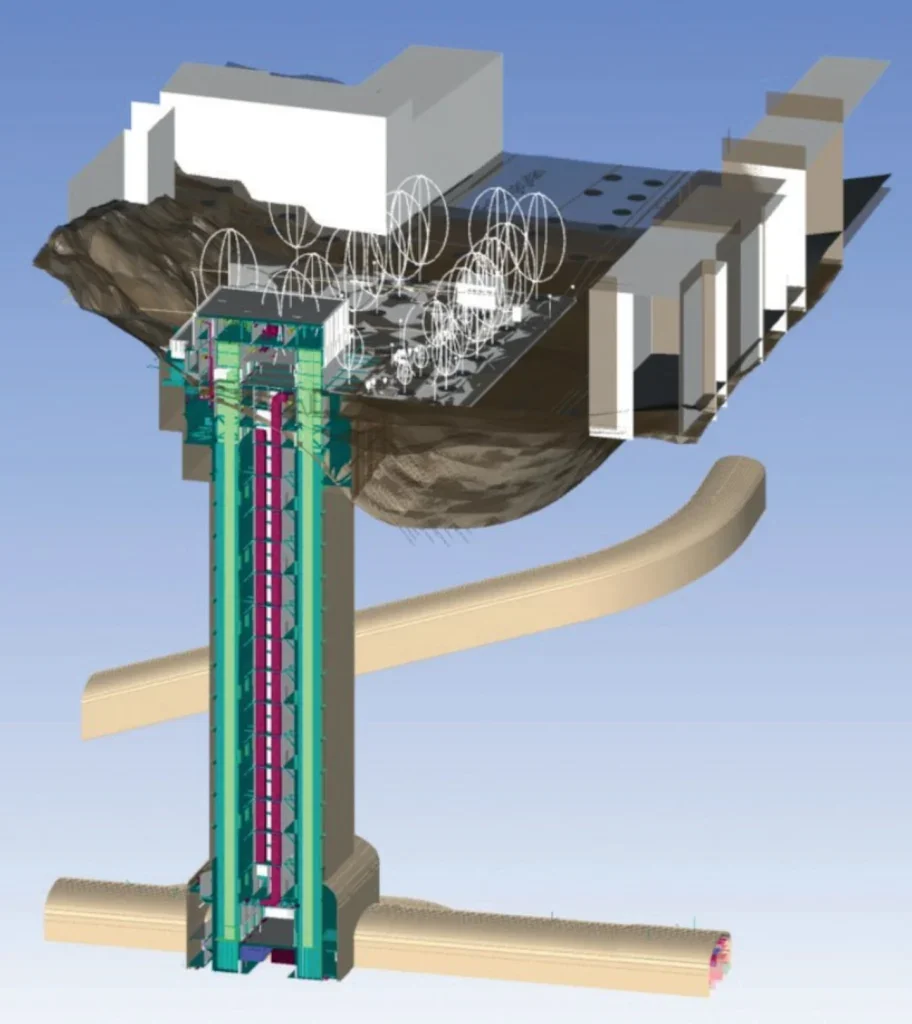
Q&A
Round Table: The future of tunnelling
The ITACET training course can be registered for only, or it can be in combination with the full congress, and a technical tour following after (see below).
CONFERENCE & ‘THINK TANK’
Rapid change in industry has led to a new initiative at WTC – the ‘Think Tank’ sessions, which are being introduced at WTC 2025.
The Think Tank is to have three sessions – Environmental Impact; Technical Development; and, Tunnelling without injuries. A session will take place on each day of the congress over 12-14 May.
The sessions will be held in the mornings and are to be followed up in the afternoons, each with a workshop the outcome of which is to be passed to the ITA General Assembly as both input and recommendations for areas of focus to come.
Under Technical Development the session will look at education in future, asking what is required from both universities and industries to succeed.
On the safety focused session, the discussion is to be is ‘Tunnelling without injuries’ realistic?
With the introduction of the Think Tank sessions to the congress format, over three days, the Technical Programme of the main conference days (12-14 May) is then fitted only into the afternoons of the first two days but then the whole duration of the last day. On that last day, though, the third Think Tank session will run in parallel to part of the Technical Programme. On the first two days the Think Tank sessions will have no other sessions running in parallel in the WTC congress schedule.
TECHNICAL PROGRAMME
The Technical Programme of WTC 2025 runs over the afternoons of 12-13 May, and all day 14 May (with a parallel session).
The Programme will run with parallel tracks, with session themes as follows:
DAY 1 (12 MAY)
Afternoon
- Track 1: Impact from climate change
- Track 2: Use of underground space
- Track 3: Investigations and ground characterisation in hard rock
- Track 4: Planning and design of underground space in soft ground
Break
- Track 1: Innovative tunnelling 1
- Track 2: Contractual aspects, financing and risk management
- Track 3: Investigations and ground characterisation in soft ground
- Track 4: Planning and design of underground space, case studies in hard rock
DAY 2 (13 MAY)
Afternoon
- Track 1: Innovative tunnelling 2
- Track 2: Conventional tunnelling 1 – case studies
- Track 3: Mechanised tunnelling 1 – case studies
- Track 4: Planning and design of underground space, case studies in soft ground
Break
- Track 1: Innovative tunnelling 3
- Track 2: Conventional tunnelling 2 – large or shallow tunnels
- Track 3: Mechanised tunnelling 2 – geological challenges
- Track 4: Planning and design of underground space – challenges, risks and redesign
DAY 3 (14 MAY)
Morning
- Track 1: Complex geometries including shafts and ramps 1
- Track 2: Conventional tunnelling 3 – sprayed concrete
- Track 3: Mechanised tunnelling 3 – hard rock TBM tunnelling
- Track 4: Instrumentation & Monitoring 1
Break
- Track 1: Complex geometries including shafts and ramps 2
- Track 2: Conventional tunnelling 4 -ground support
- Track 3: Mechanised tunnelling 4 – sustainable & new technologies
- Track 4: Instrumentation & Monitoring 2
Lunch
Afternoon
- Track 1: Safety underground – emergency management
- Track 2: Grouting and groundwater control 1
- Track 3: Mechanised tunnelling 5 – testing and characterisation
- Track 4: Operation, Inspection & Monitoring 1
Break
- Track 1: Safety underground – H&S, new approaches
- Track 2: Grouting and groundwater control 2
- Track 3: Mechanised tunnelling 6 – urban TBM tunnelling
- Track 4: Operation, Inspection & Monitoring 2 – renewal & refurb
TECHNICAL TOURS
A large number of optional project site and underground location visits are available to delegates to select from, but to elect only one – due to the trips running in parallel on a single day only, the last day of WTC 2025 activities (15 May). The trips are after the main conference has ended.
The optional Technical Tours, available for a relatively small fee, include:
- E4 Stockholm Bypass
- SFAR sewage treatment caverns, Stockholm
- The Dannemora historical mine
- Stockholm metro expansion
- Epiroc’s test mine, in Sickla, Stockholm
- Epiroc’s Orebro factory and Kvarntorp test mine
- Guided tour of geology in Stockholm
- Nobel/dynamite historical visit
The choice of tour can be selected at registration for the main event of WTC 2025.



